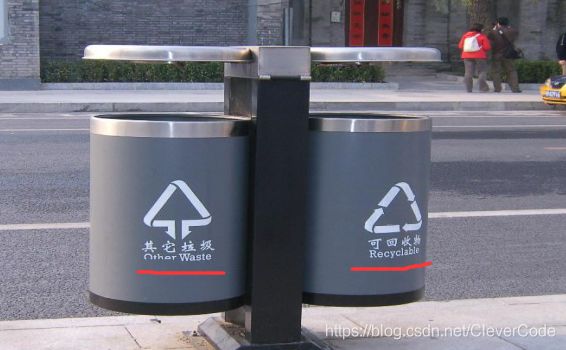新概念二册 Lesson 31 Success story成功者的故事 (used to do + it 做形式主语)
文章目录
- 1 课文
- 2 单词
- 2.1 retire [rɪˈtaɪə(r)] v.退休
- 2.2 company [ˈkʌmpəni] n.公司
- 2.3 success [səkˈses] n. 成功
- 2.4 bicycle [ˈbaɪsɪkl] n. 自行车
- 2.5 save [seɪv] v. 积蓄
- 2.6 workshop [ˈwɜ:kʃɒp] n.车间
- 2.7 helper [ˈhelpə(r)] n.帮手,助手
- 2.8 employ [ɪmˈplɔɪ] v. 雇佣
- 2.9 grandson [ˈgrænsʌn] n.孙子
- 3 语法讲解
- 3.1 used to do
- 3.2 it 形式主语
1 课文
First listen and then answer the question.
听录音,然后回答以下问题。
What was Frank’s first job?
Yesterday afternoon Frank Hawkins was telling me about his experiences as a young man.
昨天下午弗兰克.霍金斯向我讲述了他年轻时的经历。
Before he retired, Frank was the head of a very large business company, but as a boy he used to work in a small shop.
在退休前,弗兰克是一家非常大的商业公司的经理,但他小时候却在一家小铺里做工。
It was his job to repair bicycles and at that time he used to work fourteen hours a day.
他那时的工作是修理自 行车,并且通常是一天工作14个小时。
【 to repair bicycles 是主语】
He saved money for years and in 1958 he bought a small workshop of his own.
他靠多年积蓄,于1958年买下了自己的一个小铺子。
【1 one’s own workshop,属于某人一个的(强调独立的所有性);2 n 还有其它的修饰成分。为了实现n词的修饰平衡。把of one’s own放到名词后面。 a small workshop of his own。 e.g a new car of his own】
In his twenties Frank used to make spare parts for aeroplanes. At that time he had two helpers.
20多岁的时候,弗兰克曾生产飞机零配件。那时他有两个帮手。
【1 twenty 20 ,twenties 很多个20,表示在20多岁的时候in his thrities 在他30岁的时候。2 used to do 过去常常做某事,现在不这样了】
In a few years the small workshop had become a large factory which employed seven hundred and twenty-eight people.
几年之后,小铺子已经发展成了一个雇有728人的大工厂。
【small…large…对比;1 become became (过去式)become(过去分词)】
Frank smiled when he remembered his hard early years and the long road to success.
弗兰克回想着他早年的艰难经历和走过的漫长的成功之路,微笑了。
He was still smiling when the door opened and his wife came in. She wanted him to repair their grandson’s bicycle!
他正笑着的时候门开了,他的妻子走了进来。她叫他去修理孙子的自行车。
【1 两件事情,一件事情继续进行(过去进行时),另外一件突然打断(过世时)】
2 单词
2.1 retire [rɪˈtaɪə®] v.退休
2.2 company [ˈkʌmpəni] n.公司
2.3 success [səkˈses] n. 成功
successful adj. 成功的
successfully adv. 成功地
succeed v.
succeed in sth 在某方面成功
succeed in doing sth
2.4 bicycle [ˈbaɪsɪkl] n. 自行车
bike 自行车
tricycle n. 三轮车
recyclable adj. 可循环使用的

2.5 save [seɪv] v. 积蓄
save money 攒钱
save money for the rainy days 未雨绸缪
save time 节约时间
save the game 保存游戏
savings n. 存款,积蓄
2.6 workshop [ˈwɜ:kʃɒp] n.车间
2.7 helper [ˈhelpə®] n.帮手,助手
2.8 employ [ɪmˈplɔɪ] v. 雇佣
employment [ɪmˈplɔɪmənt] n. 雇佣,就业
unemployment n. 失业
unemployment rate 失业率
2.9 grandson [ˈgrænsʌn] n.孙子
3 语法讲解
3.1 used to do
used to do 过去常常做某事。(言外之意,现在不在做了)
I used to drink a lot of coffee.
We used to live in the countryside.
People used to be happy when they were yong.
3.2 it 形式主语
It was his job to repair bicycles
= To repair bicycles was his job。(2句都是正确的,相等的)
To repair bicycles 这里是主语,超过句子的一半了,显得头重脚轻。
总结:
1 it 是形式主语,to do 是真正的主语。
2 形式主语只能用it
3 主语一般超过句子的一半,就可以把主语往后放。
通常使用形式主语。语言的目的是为了信息的传递。his job 传递信息更快,表示这是讲的工作。
e.g
It is my dream to travel around the world.
It is very important to study English.
It is necessary to think about the futrue.
It is honor to be here.站在这里是我的荣幸。